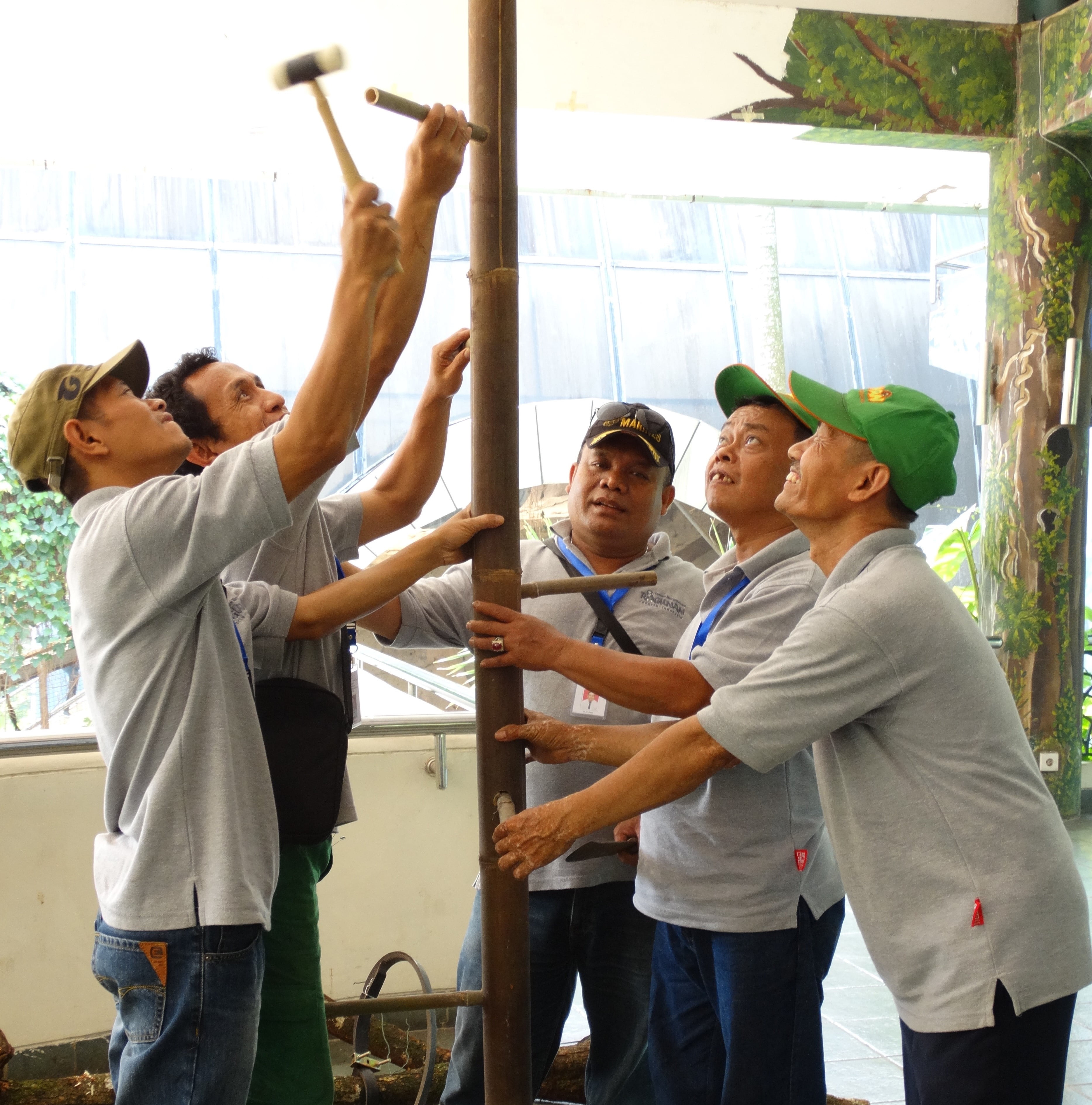Enrichment training boosts animal welfare
Wild Welfare has carried out welfare and enrichment training with members of staff from Indonesia’s Ragunan Zoo, in Jakarta.
Jakarta’s Ragunan Zoo is a member of The World Association of Zoos and Aquariums (WAZA). Wild Welfare were commissioned by WAZA to hold a training course for the Zoo’s staff and partnered with organisation The Shape of Enrichment (SHAPE), a team dedicated to furthering environmental enrichment efforts for captive animals around the world, for a tailored three-day event.
Wild Welfare and SHAPE worked with 27 animal care staff and 12 management personnel across the three days, training them in both classroom-based and practical activities. Wild Welfare’s field director Dave Morgan worked with the management team, giving training on modern animal welfare trends, the Mellor Five Domains and how to audit animal welfare in a zoo using Wild Welfare’s collection assessment methodology. Members of SHAPE delivered the practical enrichment training which included hands-on enrichment provision to several of the zoo’s different animal enclosures.
Ragunan Zoo is a government facility and confiscation and rescue animals make up many of the individuals housed there. This includes animals such as tigers, parrots and numerous different species of primates including orangutans. It is vital zoo staff have a thorough understanding of key animal welfare concepts and can integrate them within their facility and they also need to be confident in providing effective species-specific enrichment for the animals within their daily care.
Wild Welfare’s field director, Dave Morgan said: “Helping educate staff on how enrichment can improve a zoo animal’s environment and overall welfare is a fundamental part of the training we do.
“The staff we worked with at Ragunan Zoo were keen to learn and had a lot of fun on the course – and that’s key. For the animals to benefit long-term, people need to be left with the enthusiasm and the skill to continue using good enrichment practices within their facility.”
The enrichment activities carried out at Ragunan Zoo included increasing foraging behaviour for the orang-utans, enhancing behavioural diversity for sailfin lizards and increasing physical activity for binturongs. Staff were instructed how to source cost-effective materials and make enrichment tools and how to enhance animal enclosures, enabling their zoo residents the chance to explore natural behaviours and benefit from improved mental and physical wellbeing.
During the time at the zoo, one of the SHAPE team noticed the leopard enclosures held enrichment items and practices that had originally been taught at an enrichment workshop of theirs back in 2009, proving the success such training can have and the long-lasting benefits available to the animals.
~ENDS~
Notes to Editors
For more information or interview requests please contact Wild Welfare on communications@wildwelfare.org. Wild Welfare is a global organisation committed to improving animal welfare standards in captive wild animal facilities. Its mission is to partner with zoo associations, accredited zoos and aquariums, zoo professionals and leading international animal welfare organizations in identifying and improving the conditions of captive wild animals kept under circumstances of severe distress.
Wild Welfare was established in 2012 and has rapidly established itself as an internationally recognised hub in zoo animal welfare reform, forming effective collaborative relationships with a number of animal welfare NGOs, reputable universities and professional bodies.
Wild Welfare’s vision is to end the suffering of captive wild animals around the world and ensure that full and sustainable protection is given to all animals in human care.
Image © Debbie Ng (SHAPE)





